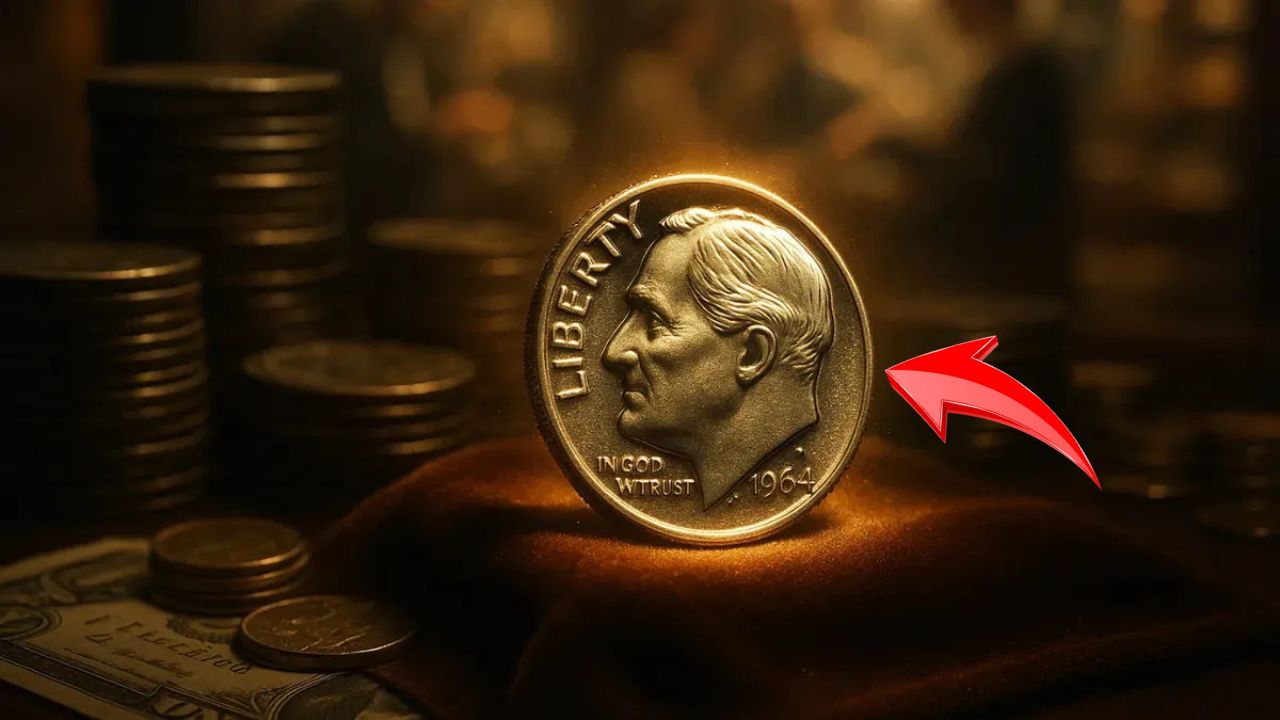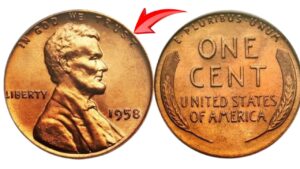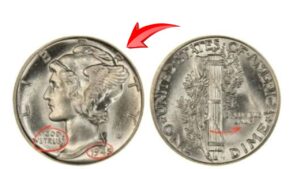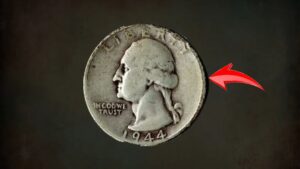Finding a rare coin in your spare change is a dream come true for many collectors. Lately, the spotlight has turned to the Roosevelt dime—specifically, rumors of a $9.8 million version making the rounds online. While this headline is more hype than reality, the world of rare Roosevelt dimes is very real, with certain versions commanding significant value. Here’s what makes some of these small coins potentially worth thousands—and how to spot them.
A Brief History of the Roosevelt Dime
The Roosevelt dime debuted in 1946, shortly after the death of President Franklin D. Roosevelt. Designed by John R. Sinnock, this coin replaced the Mercury dime and was initially minted using 90% silver. These silver dimes, produced until 1964, carry intrinsic value based on their metal content alone.
In 1965, the U.S. Mint transitioned to a copper-nickel clad composition, removing silver from circulating coins. While billions of dimes have been produced since, a few rare errors and oddities have transformed ordinary coins into valuable collector items.
What Makes a Roosevelt Dime Rare?
Most Roosevelt dimes are only worth their face value. However, certain versions—particularly those with minting mistakes or unusual histories—can be worth hundreds or even thousands of dollars. Here are some of the most sought-after types:
| Rare Feature | Description | Potential Value |
|---|---|---|
| 1965 Transitional Error | Struck on leftover 1964 silver planchets | Up to $10,000+ |
| 1982 No “P” Mint Mark | Philadelphia mint accidentally left off the “P” | $100 to $300+ |
| Off-Metal Strikes | Coin struck on a planchet meant for another denomination | Varies, up to $10,000+ |
| Prototype/Test Strikes | Experimental or non-circulating trial pieces | Can fetch high five- or six-figures |
How to Spot a Rare Roosevelt Dime
If you think you’ve stumbled upon a potentially valuable Roosevelt dime, here are the key things to inspect:
Check the Year and Material
- 1946–1964 dimes are made of 90% silver and are always worth more than face value due to silver content.
- A 1965 dime that looks silver may be a transitional error—check its weight and edge.
Look for Missing Mint Marks
- In 1982, some dimes from the Philadelphia Mint were struck without the “P” mint mark—these are considered valuable errors.
Weigh It
- Silver dimes weigh around 2.5 grams.
- Clad (post-1964) dimes weigh closer to 2.27 grams.
- Use a jeweler’s scale for accuracy.
Inspect for Visual Errors
- Look for off-center strikes, doubling in text or numbers, unusual colors, or textures.
What To Do If You Find One
Handle with Care
Use gloves or hold the coin by the edges to avoid damaging it.
Don’t Clean It
Cleaning a rare coin can destroy its value. Even mild polishing can leave scratches or wear.
Document the Coin
Take high-quality photos of both sides and note anything unusual.
Get It Graded
Submit your coin to reputable grading services like PCGS or NGC to confirm authenticity and get a certified condition grade.
Seek a Second Opinion
Before selling, consult a trusted coin dealer or auction house for an appraisal.
Reality Check: Is There a $9.8 Million Dime?
The claim of a Roosevelt dime selling for $9.8 million is likely exaggerated or misunderstood. While ultra-rare coins—such as the 1894-S Barber dime—have reached multi-million-dollar prices, no Roosevelt dime has come close to that mark in public sales. Still, some have sold for tens of thousands depending on rarity, condition, and provenance.
The True Value of Coin Collecting
Beyond monetary gains, coin collecting offers a tangible connection to history, craftsmanship, and the evolution of American money. Whether you’re scanning dimes out of curiosity or building a serious collection, each discovery brings its own excitement. Keep looking—you never know when a tiny coin might lead to a big surprise.
FAQs
Are all silver Roosevelt dimes valuable?
Yes, all 1946–1964 Roosevelt dimes have silver content and are worth more than 10 cents, but typically just a few dollars unless in pristine condition or with errors.
What is the most valuable Roosevelt dime ever sold?
A 1965 silver dime (a transitional error) graded MS67 sold for over $9,000 at auction. Other rare errors have fetched similar prices.
How do I sell a rare coin?
Start with a professional appraisal, then explore auction houses or reputable coin dealers with experience in rare U.S. coins.
What makes a dime a “transitional error”?
When a coin is struck using materials from a previous design or year—like silver planchets used after the switch to clad composition.



